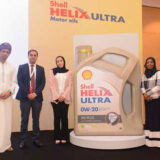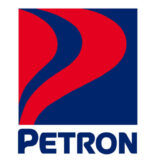Agency proposes changes to Automotive Repair Act to raise California consumers’ awareness of correct oil change intervals
California’s Bureau of Automotive Repair (BAR) has proposed changes to the state’s Automotive Repair Act aimed at increasing consumer awareness regarding vehicle oil change intervals.
A hearing on the proposal has been scheduled for April 23, 2018 at the Bureau of Automotive Repair Hearing Room, 10949 North Mather Blvd, Rancho Cordova, CA 95670. Comments on the requirements must be submitted to BAR no later than April 23, 2018.
In 1971, the California Legislature adopted the Automotive Repair Act (Business and Professions Code (BPC) § 9880 et seq.) to protect consumers from fraud and ensure their ability to make informed choices in automotive repair transactions. The bureau is the state agency charged with the enforcement and administration of the Automotive Repair Act.
BAR seeks to raise awareness of information that will enable consumers to make informed decisions regarding vehicle oil change intervals and seeks to require Automotive Repair Dealers (ARDs) to base oil change recommendations on established maintenance schedules.
Existing laws and regulations do not require ARDs to provide any notice to customers regarding oil change intervals. Existing laws and regulations also do not require an ARD to follow established vehicle maintenance schedules when recommending an oil change to a customer.
According to a recent survey by the California Department of Resources Recycling and Recovery (CalRecycle), nearly 10 million Californians change their motor oil every 3,000 miles or less, demonstrating that many consumers are unaware of published maintenance schedules for their vehicle and the conditions and factors used to determine the proper oil change interval for their vehicle.
This lack of knowledge causes consumers to unnecessarily change their oil.
According to BAR, “There is a common misconception among consumers that vehicle oil changes should occur every three months or 3,000 miles. While this was mostly true for vehicles manufactured decades ago, technological improvements in engines and motor oil have enabled drivers to significantly extend their oil drain intervals.”
For example, Ford recommends that its 2005 Explorer SUV undergo an oil change every 5,000 miles, and Honda recommends an oil drain interval of 7,500 miles for its 2007 Civic, according to the agency.
“This regulatory package will help prevent unnecessary oil waste, saving consumers money who would have otherwise had their vehicle oil drained at an interval inconsistent with recommendations provided by the vehicle manufacturer.”
Unnecessary oil changes also have a significant negative impact upon the environment, according to BAR. By volume, used motor oil is one of the largest hazardous waste streams in California. Of the almost 115 million gallons of motor oil sold in the state each year, approximately 35 million gallons are not collected after use. Used motor oil is insoluble and contains heavy metals and toxic chemicals.
The proposed regulations will require ARDs to provide the following notice on an invoice, or a document attached to an invoice, after completing an oil change: “Your vehicle’s manufacturer publishes oil change intervals, and the conditions and factors that influence those intervals, in the owner’s manual.”
The proposed regulations will additionally require ARDs to adhere to a maintenance schedule published by the vehicle manufacturer, an industry accepted and nationally distributed automotive service specification provider or CalRecycle when making a recommendation to a customer regarding a vehicle’s next oil change.
Although customers will retain the ability to have an oil change performed by an ARD at an interval of the customer’s choosing, it is anticipated that the proposed regulations will reduce unnecessary oil changes by increasing public awareness of published vehicle maintenance schedules and of the conditions and factors used to determine a vehicle’s proper oil change interval.













